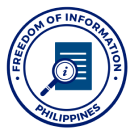Vice President and Philippine Education Secretary Sara Z. Duterte’s Keynote Speech for the 2023 Global Education and Innovation Summit (GEIS) Seoul, South Korea September 21, 2023
Ladies and gentlemen, Assalamualaykum
Annyeong Hasimnikka.
Good morning, everyone.
Joheun Achimibnida Yeoreobun.
Let me express my sincere gratitude to the government of the Republic of Korea for bringing together world leaders and experts in the field of education through the Global Education and Innovation Summit.
Education is a powerful resource, and I am humbled to be part of this gathering of education leaders and experts from all over the world, and blessed to be able to share this keynote. But I believe what is most important today is also the opportunity to learn from all of you.
I have two observations which I believe have greatly affected education in the last twenty years.
First is that never in the history of the world has information been so readily available – to students, parents, and educators because of technology.
Education has vastly evolved from the traditional imparting of knowledge in classrooms, at home from parents, and from our respective social circles and communities.
Education today must now exist side by side with technology, which continues to grow at an astoundingly rapid pace.
Yuval Noah Harari said it best when he stated: “the last thing a teacher needs to give his or her pupils is more information. They already have far too much of it. Instead, people need the ability to make sense of the information, to tell the difference between what is important and unimportant, and above all, to combine many bits of information into a broad picture of the world.”
And I add, it is equally important to teach children how to differentiate truthful information from the untrue, to know what contributes to a learner’s development and what does not, and what will instill in them the correct values that will turn them into productive citizens of their respective countries.
Critical thinking has become more important than ever.
The second observation I wish to put forth, is the threat of disruption in education.
In my lifetime, I have witnessed one horrific disruption to education – the Covid 19 Pandemic.
I share the same experience with many parents in facing the numerous educational challenges that were brought upon all of us by the pandemic.
During the pandemic, most students in the Phillipines had to stay at home for their education, and I believe this deprived them the ease and function of communicative learning.
Covid-19 also kept students away from school environments, which we know are conducive to fostering independent thought and activity.
Further, the pandemic deprived many students of social interactions that are largely developed in school settings, which includes group work and collaboration.
Disruptions in education are not limited to pandemics, but may be the result of other causes such as areas in conflict, lack of infrastructure or human resource, or even as common as inclement weather.
These two observations highlight four specific things that we must focus on when speaking about education in the twenty first century and digital education – critical thinking, communication, collaboration, and creativity.
These four elements are widely considered by experts as the pillars of modern education. And should remain the same in digital education where the learning environment departs from our traditional classrooms.
Last night, I was editing the keynote message for this morning. And I was telling my colleague, “Why are we editing this keynote? Shouldn’t we use AI to edit this keynote at this hour?” And then my colleague said, “Sshh, someone might hear you.”
It appeared to me that AI evokes shame, evokes fear – because of the unknown.
We now live in an era where undeniably, technology must be harnessed to improve access, quality and equality in education. And the advent of artificial intelligence will certainly create another paradigm shift in education. While this possibility will present newer and greater opportunities, it will also present many uncertainties in our vision of digital education.
And so we propose the following:
-
First, the paramount consideration whenever and wherever we use technology should wrap around critical thinking, communication, collaboration, and creativity.
-
Second, we must be responsive to the effects of technology in our educational systems. This means recognizing quickly what is not working and change it, to continuously improve even if it is a success and to always keep in mind that the most important result is not the technology itself, but how it affects the development of our learners; and
-
Lastly, adaptability and sustainability of new technology in education systems must be studied by the end users before implementation. This is in line with the thought that government programs and policies should be designed according to the behavior of people. We must recognize that some technologies may work for one ecosystem, but it may not work for others. It is the teachers and students who will be using it that will determine its effectivity.
Adam Grant famously once said “that the greatest leaders don’t necessarily have the best expertise but sought out the broadest perspectives.” He further said that “the more options one gathers, the higher the probability of choosing the best option.”
I believe this is the reason why we are all gathered here today. Let us take this opportunity to reshape education in our respective countries in order to provide our learners the all-important opportunity of reaching their full potential.
The ultimate result of all our efforts should be the molding of productive and peaceful global citizens, equipped with 21st century skills, but with a heart for nation- building.
Ang lahat ng ating ginagawa ay para sa Diyos, bayan at pamilya.
All the things we do, is for God, country and family.
Kamsahamnida.
Shukran.



